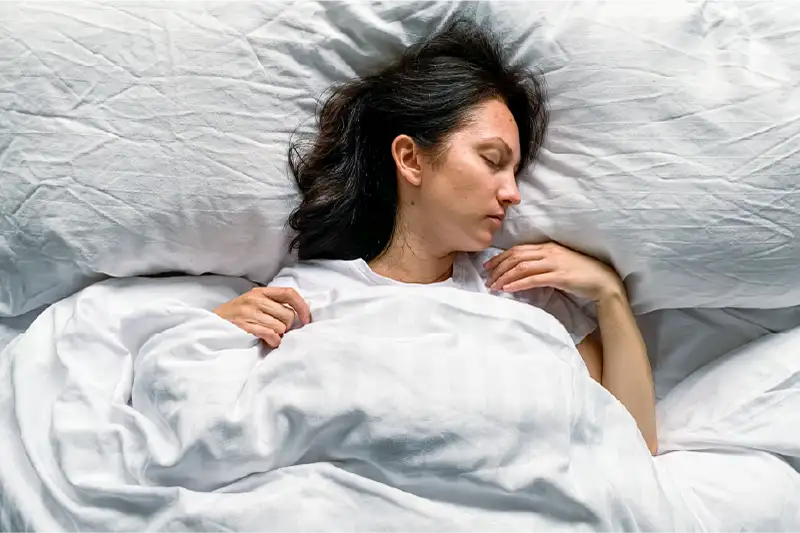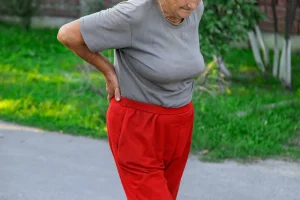Living with chronic pain creates a frustrating cycle: pain makes it harder to sleep, and poor sleep makes pain worse. At Augusta Pain Center, we understand this challenging relationship and help patients break free from sleepless nights caused by chronic pain conditions.
Research shows that 50-80% of people with chronic pain experience persistent sleep problems. If you’re struggling with pain-related insomnia, you’re not alone—and there are proven solutions that can help you finally get the rest you need.
The Connection Between Chronic Pain and Sleep Disorders
Why Chronic Pain Disrupts Sleep
Pain is the leading cause of insomnia in the United States. When you’re dealing with chronic back pain, hip pain, knee pain, or other persistent conditions, falling asleep becomes a nightly battle. Here’s why:
- Physical discomfort makes it difficult to find a comfortable sleeping position, and severe pain can wake you throughout the night, making it hard to return to sleep.
- Medication side effects from narcotic pain medications can paradoxically cause insomnia by affecting your body’s natural REM sleep cycle and creating irregular sleep patterns.
- Psychological factors including stress, anxiety, and depression commonly accompany chronic pain, creating racing thoughts that keep your mind active when you need to wind down.
How Poor Sleep Worsens Chronic Pain
The relationship between sleep and pain works both ways. According to research published in the Review of Pain, chronic pain patients with sleep problems report:
- More severe pain intensity
- Longer pain duration
- Higher levels of anxiety and depression
- Worse impairment in daily functioning
Poor sleep also interferes with your body’s natural healing processes, reducing tissue repair and increasing inflammation that can worsen existing pain conditions.
Chronic Pain Sleep Disorders: Breaking the Cycle
Understanding Pain-Related Insomnia
Insomnia is defined as difficulty falling asleep, staying asleep, or returning to sleep. Chronic insomnia occurs when these problems happen more than three times per week for three consecutive months.
Pain-related sleep disorders create a vicious cycle where:
- Chronic pain makes sleep difficult
- Sleep deprivation increases pain sensitivity
- Increased pain makes sleep even more challenging
- The cycle continues and worsens over time
Chronic Pain Sleep Disorders & Pain Management Sleep Solutions
Like the number of factors that are working together and causing you to lie awake at night, a bunch of things work together to help you sleep better. By employing these tips that are proven to promote better sleep, you should be able to catch more zzz’s at night and spend less time wishing that you were. So rest easy and think about the following tips to help you get a better night’s rest.
Create a Structured Bedtime Routine
- Set a consistent sleep schedule by using an alarm to signal bedtime preparation. This helps train your body to recognize when it’s time to sleep.
- Take medications during your routine if you’ve been prescribed pain or sleep medications. Consistent timing helps your body adjust to a regular sleep pattern.
- Eliminate stimulating activities by turning off electronics and engaging in calming activities like reading, journaling, or listening to podcasts.
Control Your Sleep Environment
- Maintain ideal temperature between 60-67°F, which is cooler than most people keep their homes during the day. Consider using fans or adjusting your thermostat specifically for your bedroom.
- Create complete darkness by using blackout curtains or eye masks. Artificial light disrupts your circadian rhythm and makes quality sleep more difficult.
- Limit evening fluids to reduce nighttime bathroom trips that can wake you when you’re finally comfortable despite pain.
Natural Pain Relief for Better Sleep
- Apply ice to painful areas before bed to naturally numb discomfort and reduce inflammation that might keep you awake.
- Engage in low-impact exercise during the day, which helps with both pain management and sleep quality by reducing stress and anxiety.
- Avoid stimulants including caffeine (found in coffee, tea, chocolate, and some sodas) and nicotine, which can interfere with sleep even when consumed earlier in the day.
Resist daytime napping, even when you’re exhausted, as napping during the day makes it significantly harder to fall asleep and stay asleep at night. Consider sleep aids cautiously by always consulting with your doctor before taking any sleep medications, including over-the-counter options.
When to Ask for Pain Management Help
While these strategies can significantly improve your sleep quality, chronic pain often requires comprehensive medical treatment to address the root cause of both your pain and sleep problems.
Signs You Need Help From a Pain Management Specialist
- Pain prevents sleep more than three nights per week
- You’ve tried multiple strategies without improvement
- Your pain is getting worse over time
- Sleep problems are affecting your daily life and relationships
- You’re experiencing depression or anxiety related to your pain
Augusta Pain Center’s Comprehensive Approach
At Augusta Pain Center, we don’t just treat symptoms—we address the underlying causes of chronic pain that are disrupting your sleep. Our experienced pain management specialists in Augusta, GA understand how chronic pain and sleep disorders interconnect, and we develop personalized treatment plans that target both issues simultaneously.
Our treatment approach includes:
- Comprehensive pain assessment and diagnosis
- Advanced pain management techniques
- Medication management and optimization
- Lifestyle modification guidance
- Ongoing support and monitoring
Take the First Step Toward Better Sleep
Don’t let chronic pain steal another night of sleep. Chronic pain and sleep problems are treatable conditions, and with the right medical support, you can break the cycle of pain and insomnia.
Schedule your consultation with Augusta Pain Center today to discuss your chronic pain and sleep challenges. Our specialists will work with you to develop a comprehensive pain treatment plan, helping you get back to the restful nights you deserve.





